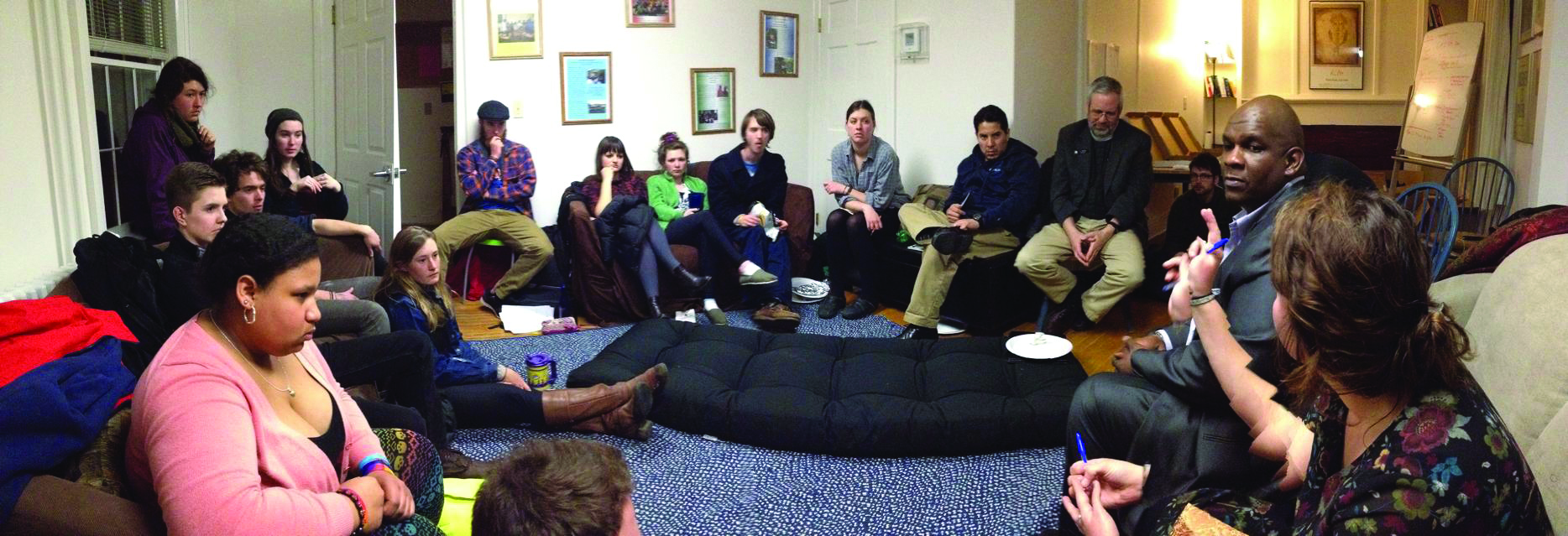More than two weeks have gone by since the massacre at the Charlie Hebdo in offices Paris. As France recovers from one of its biggest crises in decades, the rest of the world has begun to unravel the social and cultural implications of the attacks.
Last week the The Global Dialogue Center held a discussion, moderated by professors and driven by student opinions, focusing on the global implications of Charlie Hebdo, and what issues, if any, have resulted from the attacks. Professor John Collins of the Global Studies department began the talk by highlighting the different kinds of critical perspectives he noticed had emerged, notably the questions of persecution in France for offensive speech, and how this has affected those who engage in their own satirical acts. This thought was mirrored by Professor Roy Caldwell from the Modern Languages department, whose perspective was, in part, fueled by old court cases against Charlie Hebdo.
In 2006 the magazine was sued over a cartoon of the prophet Muhammad, but the magazine’s right to print the cartoon was upheld, stating that the right to freedom of the press included a freedom to represent objects of religious veneration. The courts in fact found that no one was being obliged to read or purchase the magazine, and with this decision ruled upon the status of satire and caricature in France. While Charlie Hebdo did offend, if it did not offend it would not have the same function as an idea and a movement.
The thoughts of Caldwell and Collins flourished alongside the ideas of Professor Eloise Brezoult, a Modern Languages professor and native of France. Brezoult viewed the conflict from the perspective of a French citizen, and focused on how these attacks tarnished the ideal of the French republic. Brezoult touched on what it means to be a French citizen, and the role of religion in France.
Students such as Tim Wheeler ‘15 agreed that a large part of the issues facing France were, “issues with minorities as well as freedom of expression.” There were many students present from countries around France as well as students that had studied abroad there who shared concerns such as these, based around their experiences in those countries.
Maria Trummer ‘15 decided to attend the discussion after coming back from studying abroad in France and making many friends who were still in there during the attacks. Looking at it from a global perspective, Trummer stated that, “society is afraid that their origins are under pressure, where as the west looks at it as just a freedom of expression issue.” Trummer’s viewpoint was one that echoed the purpose behind the Global Dialogue Centers discussion: that the Charlie Hebdo attacks have implications deeper than many understand, and talks such as these help to find not only answers, but comfort in the aftermath of unthinkable violence.
Get real time updates directly on you device, subscribe now.
Prev Post



